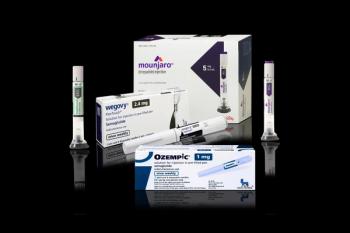
Your daily dose of the clinical news you may have missed.


Your daily dose of the clinical news you may have missed.

ENDO 2025. Older adults, rural populations, and residents in the Midwest experienced the highest mortality rates, according to new data.

The abrupt cancellation, without warning or cause, has medical groups and health care leaders concerned about patient access to no-cost preventive services.

Your daily dose of the clinical news you may have missed.

Discover essential clinical insights on Alzheimer disease screening in primary care, eczema treatments, and the latest in cancer detection and diet impacts on CHD risk.

A student-led teledermatology-dermoscopy initiative that identified skin lesions in underserved communities could be a scalable model for early skin cancer detection and care.

GRAIL announced that both cancer detection and positive predictive value with Galleri were substantially higher than in the earlier published PATHFINDER study.

As the incidence of young-onset colorectal cancer continues to rise, the findings from a large Taiwanese population-based study support lowering the age for initial screening.

Your daily dose of the clinical news you may have missed.

FDA-cleared DermaSensor device shows 96% sensitivity and reduces missed skin cancer diagnoses by 50% in primary care, according to new data.

Valid and accessible measures are needed to monitor low-value care practices and set benchmarks for de-implementation efforts, researchers reported.

A study reveals low clinician engagement in digital cognitive assessments for dementia in primary care, highlighting workflow and other barriers to early detection.

Breakthrough device designation for the multicancer detection test is supported by clinical validation data demonstrating an overall specificity of 98.6% and sensitivity of 60%.

A new study of a circulating tumor DNA-based screening test revealed promising sensitivity and specificity for for CRC, but only 12.5% sensitivity for advanced neoplasia.

ASCO 2025. Elinzanetant significantly reduced the frequency of VMS vs placebo in women on endocrine therapy for treatment or prevention of HR+ breast cancer.

Your daily dose of the clinical news you may have missed.

Only about 75% of people with a positive result on a stool-based test for colorectal cancer complete screening with a colonoscopy. Fendrick "won't rest" until it's 90%.

Mark Fendrick, MD, thinks that right now, the relative accuracy of blood-based tests for CRC compared with available alternatives is not quite comparable. He explains.

With a population goal of having 80% to 90% of age-eligible Americans screened for colorectal cancer, colonoscopy can not be the initial test for everyone, Fendrick emphasizes.

Your daily dose of the clinical news you may have missed.

Never considered the carbon footprint left by a screening for colorectal cancer? Fendrick has and did the research to learn more. He explains in this short video.

GLP-1 receptor agonists showed promise in lowering obesity-related cancer risks in adults with type 2 diabetes, particularly colorectal cancer.

Your daily dose of the clinical news you may have missed.

Your daily dose of the clinical news you may have missed.

Results showed that a nanoencapsulated CBD cream reduced UV-A–induced nuclear and mitochondrial DNA damage linked to photoaging in human skin.